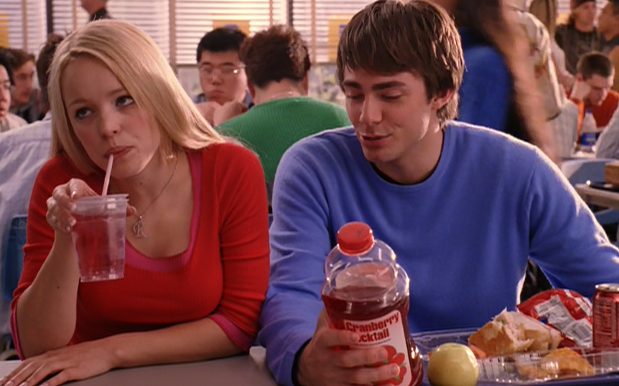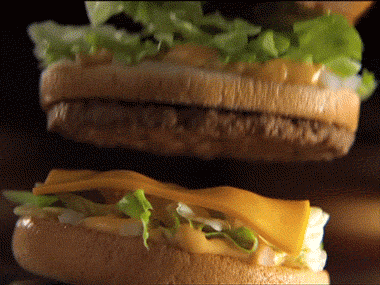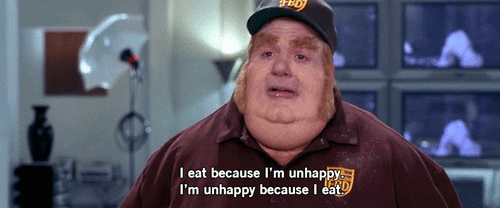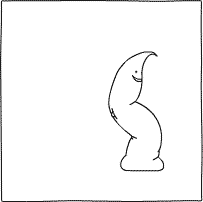
I ate a large Big Mac meal last night.

Yeah. Two all beef patties, special sauce, lettuce, cheese, pickles and onions on a sesame seed bun. I shoved all those barbecue sauce-dipped, golden fries inna my gob too, and washed it all down with a watery post-mix Coke.
Guess what? This morning I feel smacky as all get out.
My stomach’s bloated, I’m backed up like a two ton truck in heavy traffic and I’m battling a few demons.

You may be able to relate to this modern tale. Sure, your vice might be different (Messinaing till you can Messina no more, anyone?) but a binge almost always ends the same way – feeling like garbage and wanting to make a change.
We feel you, it hurts. But before you mutter pack er up bois, hop onto Instagram and order a ‘teatox’ to kickstart the detox, stop – if you didn’t already know, detoxing is naht a very wise idea at all.
The NY Times posted an article yesterday systematically decrying the psydeo-health craze of the ‘juice cleanse’ – an expensive fad that has people surviving on juice alone for days on end, in the pursuit of a ‘cleaner, toxin-free’ rig.
We know, detoxing and diets are a contentious point. But before those of you in favour of the cleanse fritz out in our comments section, we thought we’d chat to Lisa Renn, accredited practicing dietitian and spokesperson for the Dietitians Association of Australia, about the affects of detoxing on the body, and why it leads to more problems than it solves.
What exactly is a detox?
By definition, a detox is a process or period of time in which one abstains from, or rids the body of, toxic or unhealthy substances.
“Alcohol, for example, is a toxin,” says Lisa. So, going for periods of time without drinking, doing drugs or consuming known carcinogens can be beneficial for you health. Making healthier choices like eating more vegetables and less processed food is always a winner, too – but it gets unhealthy when you start subbing in ‘aids’ like laxative teas, or juices, instead of meals.
When I first float the concept of a dietary detox by Lisa, she immediately says “they’re unnecessary.”
“Our body has the most amazing detox machine, called the liver and the kidneys. All we need to do is eat well, and they’ll work well,” she stresses.
But that hasn’t stopped the cataclysmic rise of ‘health’ companies spruiking sickeningly expensive products designed to ‘cleanse’ our mortal rigs.
Take Australian company, Pressed Juices, for example. They offer a range of Juice Cleanses, where you forgo food for a period of time (3, 4 or 5 day cleanses are available) and live off liquid instead. Each 478ml juice on its own costs $9. Their website states “we are surrounded by pollution, chemicals and plastics, as well as alcohol, caffeine, medications and food preservatives – and our livers simply cannot keep up.”
They go on to describe the ways in which the juices “hydrate your cells” and “support detoxification and healing.”
When I read this out to Lisa, she says it’s “OTT marketing.”
“A juice detox is not going to help your liver. Instead, cutting back on caffeine, preservatives and the like, and getting more vegetables and high-fibre foods will make you feel better and will support liver function.”
“A healthy diet should consist of two pieces of fruit and five different vegetables a day. If you’re getting them in these juices, you’re chucking out the fibre. Dietary fibre is the stuff that helps your bowels work well. And well functioning bowels are really important in maintaining health.” she says.
What about teatoxes, what’s the deal there?
If you’ve not been residing under a hideously large rock for the last few years, you’ll be familiar with the plethora of diet and detox pages that litter social media.
Their posts are most frequently of ‘before and after’ shots and ‘inspirational’ images (almost always of scantily-clad, young, tanned and toned women) accompanied with quotes such as “Babes, stop waiting for things to happen. Go out and make them happen.”, a lá this:
The ubiquitous SkinnyMe Tea is a good example. Their OG account was deactivated by Instagram for promoting “extreme dieting” back in mid 2013, but that didn’t stop them creating a new gram that has amassed a whopping 375k following. “They play on people’s insecurities,” says Lisa. “It’s unfair.”
Out of curiosity, I asked a few fellow PEDESTRIAN.TV employees if they’d had any experience with these products, and yep, they’d had mates who’d lost days at work or uni due to uncontrollable shitting.

Sexy
And there’s a good reason why. The aforementioned teas tout weight loss benefits that are totally natural – but if you have a look at their disclaimers, the way they work becomes pretty obvious. All they are are glorified, beautifully packaged, expensive laxatives. That’s pretty much it:
“The Evening Cleanse component of the SkinnyMe Teatox includes Senna, which contains hydroxyanthracene glycosides. It has a laxative effect. Make sure you stay well hydrated throughout your teatox and are getting enough electrolytes. Dehydration will not aid your health or weight loss journey! We strongly recommend the use of an electrolyte supplement such as ‘gastrolyte’ (coconut water is a great natural alternative) for the duration of your teatox.”
Not only is diahhorea violently painful, it also results in a rapid loss of fluids, hence why they recommend using electrolyte supplements during the supposed health journey.
There’s plenny of hard research to back up the fact that detoxing is stupid, too. In a study of eight popular detox diets by Macquarie University last year, they concluded that yep, it’s all pretty clearly bullshit:
“A critical review of the evidence surrounding popular detox diets has concluded that there is no compelling evidence to support the use of detox diets for weight management or toxin elimination.“Financial costs to consumers, unsubstantiated claims, and the potential health risks of detox products has lead researchers to state that until further systematic evaluations of commercial detox diets are undertaken, they should be discouraged by health professionals.”
Lisa says “the idea of using laxatives in the long-term is unhelpful for your bowel, as it gets lazy. Senna [the main ingredient in SkinnyMe Tea] is a bowel stimulant. It stimulates the muscles in the bowel to make you go to the toilet, instead of the bowel working naturally.”
And ain’t nobody got time for a lazy bowel.
Constipation could suggest a need for more fibrous food in your diet. You can get this from natural ingredients like chia seeds, flaxseeds, leafy green veggies and coconut water. If this doesn’t work, you might have IBS – and you should schedule in a visit to the doc.
“If you’re getting fibre, your stool bulk will be bigger,” says Lisa. “If you’re drinking enough water [8 glasses a day], that will also help move the stool through your bowel. And lastly, movement is another thing your bowel will respond well to.”

Yay poopie
“The solution is quite easy when you get the right information – always choose healthy eating over diets,” says Lisa.
“If you’re looking at buying these products to lose weight – it’s absolutely not going to work. Healthy eating and exercise is going to work.”
Photo: Mean Girls.
Lisa also points out that relying on these products could point to disordered eating. The Butterfly Foundation have some fantastic information and resources if you’re having trouble with food. If you’re a bit lost on how to eat healthier, you can check out this vid we fanged together with the help of NSW Health. You can also visit the DAA website for a list of dietitians and accurate info.



